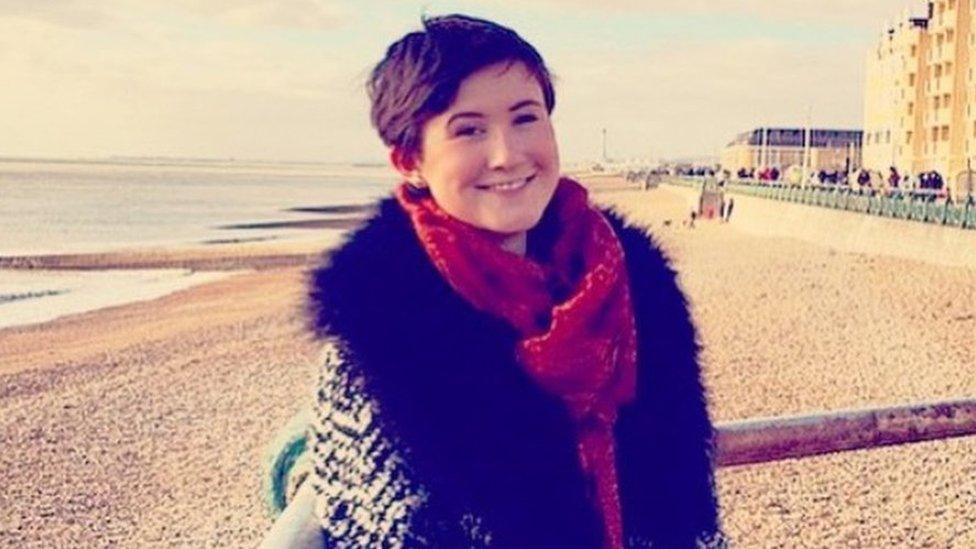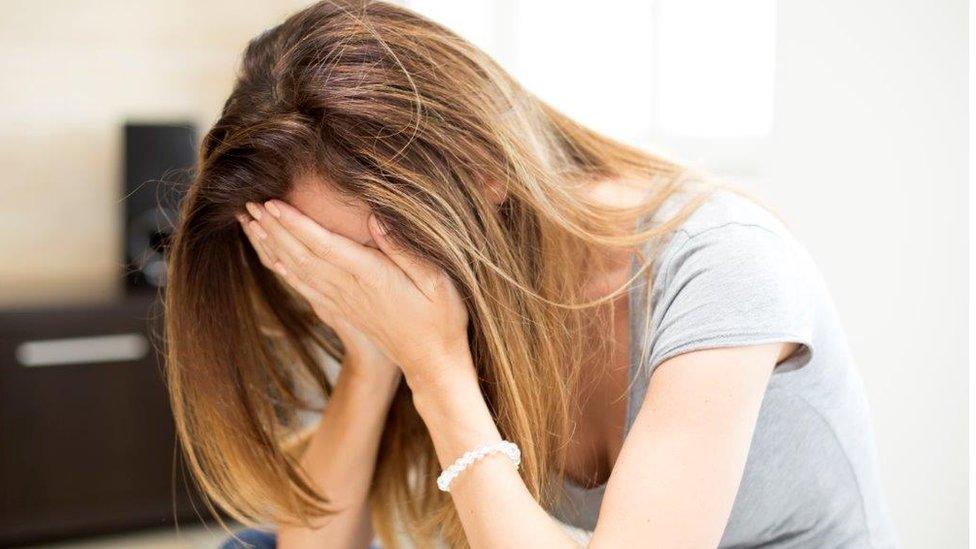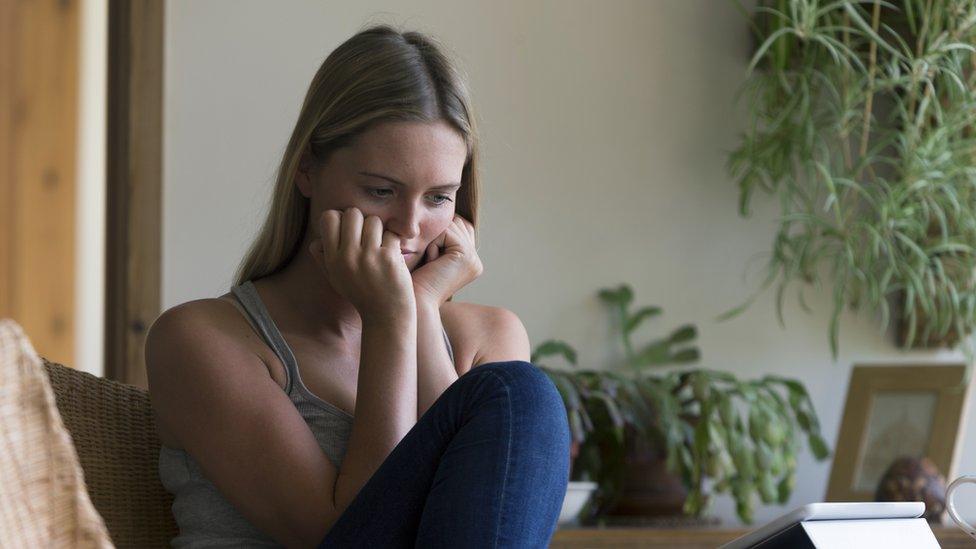I needed counselling not the police, says one student
- Published

Ellie Muffitt says the university's attitude made everything far worse than it needed to be
Ellie Muffitt says the way her university handled her complaint of sexual assault sent her into a spiral of depression.
She considered suicide and ended up dropping out of her course.
Ellie was three weeks into her first year in 2010 when the incident took place in her student room.
It took several weeks for her to summon up courage to report it to the university.
"I was just hoping he would be moved to another hall.
"I didn't want a scene. I just didn't want to live near him any more."
'Losing control'
But instead of the support she had hoped for, the university insisted she referred the matter to the police, which had not been her original intention.
The process snowballed and she felt she had lost control of it, with hours spent giving statements at the local police station and visits from officers to her room on campus.
"It was the exact opposite of what I needed at the time because I was already trying to get over losing control during the incident.
"I felt I was being made to go through the legal process in order to get support from the university."
With hindsight, she feels that she probably didn't realise how much pressure she was under in the following weeks.
"I remember feeling stressed and uncomfortable but I wasn't struggling with depression at the time."
She became aware that some fellow students were avoiding her: "I felt in the wrong," she says.
She went home from university to recover - but says that her return the following September to retake her first year, coincided with the case coming to court.
The young man was acquitted and the university also refused to tell her whether he was still studying there.
'Life-threatening'
It was then that her mental state descended into severe depression and post-traumatic stress disorder.
She considered ending her life but says no-one on the university staff ever suggested counselling.
She made the decision to take fortnightly sessions herself, something she believes saved her life.
She says the university was "consistently unhelpful" and "made it so much worse and so much more life-threatening than it ever needed to be".
She wishes they had considered her "like a person, rather than like a case" and that someone had suggested counselling to her at the outset.
"I think it would have helped me come to terms with the stress I was under and become aware of the possible mental health problems I might get."
She became involved in a student union campaign on sexual assault and harassment but eventually dropped out of her course 18 months later.
In her view, universities need to be "as proactive and supportive of the victim as possible".
"It's interesting that the union was further ahead than the university."
She welcomes the new guidelines as "a step" towards ensuring that situations like hers are "handled correctly" from the outset.
Ms Muffitt waived her right to anonymity for this interview.
- Published21 October 2016

- Published21 October 2015
